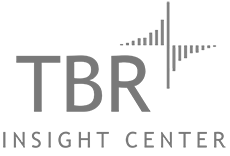Quick Quantum Quips: Economic advantage nears as software development advances
Welcome to TBR’s monthly newsletter on the quantum computing market: Quick Quantum Quips (Q3). Market activity remains strong despite the impact of COVID-19 on daily lives, as researchers spider out through many different elements of the quantum ecosystem in pursuit of scientific discoveries that will bring the quantum era into clearer view and closer proximity.
For more details, reach out to Stephanie Long or Geoff Woollacott to set up a time to chat.
April 2020 developments
Announcements continue in different scientific discoveries to enhance quantum systems and bring them closer to economic advantage. More interesting are the flurry of announcements aimed at developing software for live applications, especially for financial services use cases.
- Singapore Management University (SMU) and Tradeteq announced they are working on a project to develop a quantum-based credit scoring method for companies. The work will be underpinned by a grant from the Monetary Authority of Singapore’s Financial Sector Technology & Innovation (FSTI) – Artificial Intelligence and Data Analytics (AIDA) Grant Scheme. To TBR, this is a clear example of the kind of application that will become a proof point of quantum’s economic advantage. The goal of the application will be quicker credit assessments based on greater volumes and varieties of data. This speed to insight can underpin fintech instruments based on AI credit checks.
- QC Ware’s France subsidiary announced it had been selected as one of 32 BPIFrance Concours d’Innovation i-Nov award winners. QC Ware’s award was in the deep tech category for its work on quantum machine learning. Like SMU and Tradeteq, QC Ware’s initial focus has been computational finance applications in concert with Goldman Sachs. Like many early quantum leaders, the efforts have been to create software tools for classical data scientists as the initial “bridge” between the classical and quantum computing worlds.
- The IBM Quantum Challenge, timed to coincide with IBM (Virtual) Think in May, serves multiple purposes. First, it provides a reference point to how far IBM efforts have grown since quantum systems were made available in the cloud — now at 16 systems accessed by 225,000 registered users performing 500 million circuit calculations daily. Second, it seeks to foster broader market education on the technology as well as on the tool sets IBM has available for those seeking to familiarize themselves with the technology and its potential commercial use cases.
- Terra Quantum, based in Switzerland, announced it has raised €10 million to advance the European quantum tech ecosystem. This announcement has geopolitical implications as different regions see the strategic implications of quantum technology and seek to establish their in-region competencies. The startup intends to use its funding to build infrastructure and software solutions leveraging quantum technologies. Initially, the efforts will revolve around developing hybrid quantum algorithms ahead of the development of commercial-grade quantum computing systems.
- University of New South Wales and Delft University of Technology announced independent efforts using silicon spin, or “hot,” qubit devices. These devices operate at 1 kelvin, which is 15 times hotter than current technologies can tolerate. Reduced cooling costs and the ability to locate traditional computing instances near the quantum systems are two of the proposed benefits of this new technological approach.
If you would like more detailed information around the quantum computing market, please inquire about TBR’s Quantum Computing Market Landscape, a semiannual deep dive into the quantum computing market. Our latest version published in December. The next iteration will be placing attention on the Quantum-related professional services being deployed to increase business awareness and technical skills that will be in short supply once quantum’s economic advantage becomes reality. Vendors interested in being considered for inclusion in the report should reach out to Geoff or Stephanie directly to arrange a briefing.
And, lastly, on behalf of the entire TBR team, we hope you stay healthy and safe in these unique times.



Leave a Reply
Want to join the discussion?Feel free to contribute!